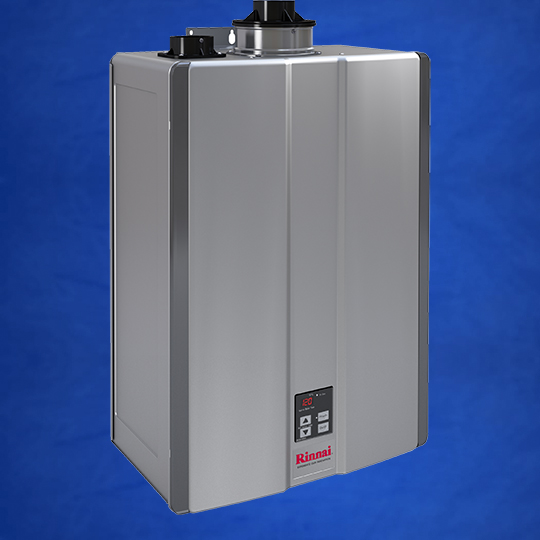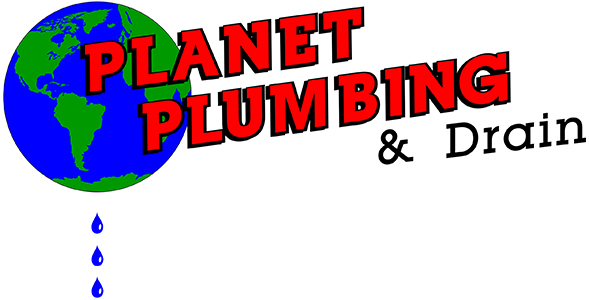How Tankless Water Heaters Work
As tankless experts, we can provide insight into how tankless water heaters work. Once you understand the technology, you probably will be very motivated to switch to tankless.
Tankless Water Heater Technology
Demand water heaters heat water directly without the use of a storage tank. Therefore, they avoid the standby heat losses associated with storage water heaters. When a hot water tap is turned on, cold water travels through a pipe into the unit. Either a gas burner or an electric element heats the water. As a result, demand water heaters deliver a constant supply of hot water. You don’t need to wait for a storage tank to fill up with enough hot water. However, a demand water heater’s output limits the flow rate.
Typically, demand water heaters provide hot water at a rate of 2–5 gallons (7.6–15.2 liters) per minute. Gas-fired demand water heaters produce higher flow rates than electric ones. Sometimes, however, even the largest, gas-fired model cannot supply enough hot water for simultaneous, multiple uses in large households. For example, taking a shower and running the dishwasher at the same time can stretch a demand water heater to its limit. To overcome this problem, you can install two or more demand water heaters, connected in parallel for simultaneous demands of hot water. You can also install separate demand water heaters for appliances—such as a clothes washer or dishwater—that use a lot of hot water in your home.

Other applications for tankless heaters
- Remote bathrooms or hot tubs
- Booster for appliances, such as dishwashers or clothes washers
- Booster for a solar water heating system
Although gas-fired demand water heaters tend to have higher flow rates than electric ones, they can waste energy if they have a constantly burning pilot light. This can sometimes offset the elimination of standby energy losses when compared to a storage water heater. In a gas-fired storage water heater, the pilot light heats the water in the tank so the energy isn’t wasted. The cost of operating a pilot light in a demand water heater varies from model to model. Ask the manufacturer how much gas the pilot light uses for the model you’re considering. If you purchase a model that uses a standing pilot light, you can always turn it off when it’s not in use to save energy. Also consider models that have an intermittent ignition device (IID) instead of a standing pilot light. This device resembles the spark ignition device on some gas kitchen ranges and ovens.
For homes that use 41 gallons or less of hot water daily, demand water heaters can be 24%–34% more energy efficient than conventional storage tank water heaters. They can be 8%–14% more energy efficient for homes that use a lot of hot water—around 86 gallons per day. You can achieve even greater energy savings of 27%–50% if you install a demand water heater at each hot water outlet.
Selecting a Tankless Hot Water Heater
Demand water heaters cost more than conventional storage water heaters. However, you may find that a demand water heater may have lower operating and energy costs, which could offset its higher purchase price.
Before buying a demand water heater, you also need to consider the following:
- Size
- Fuel type and availability
- Energy efficiency (energy factor)
- Estimate costs
Visit our Tankless Water Heater Brand page to learn about tankless manufacturers.
Tankless Lifespan
Most tankless water heaters have a life expectancy of more than 20 years. They also have easily replaceable parts that extend their life by many more years. In contrast, storage water heaters last 10–15 years. Periodic water heater maintenance can significantly extend your water heater’s life and minimize loss of efficiency. Read your owner’s manual for specific maintenance recommendations.


Installing your tankless water heater
Proper installation and maintenance of your demand water heater can optimize its energy efficiency.
Proper installation depends on many factors. These factors include fuel type, climate, local building code requirements, and safety issues, especially concerning the combustion of gas-fired water heaters. Therefore, it’s best to have a qualified plumbing and heating contractor install your demand water heater. Do the following when selecting a contractor:
Request cost estimates
- Get price estimates.
- Ask for references.
- Look at online reviews
- Check the company with your local Better Business Bureau.
- See if the company will obtain a local permit if necessary and understands local building codes, etc.
If you’re determined to install your water heater yourself, first consult the manufacturer. Manufacturers usually have the necessary installation and instruction manuals. Also, contact your city or town for information about obtaining a permit, if necessary, and about local water heater installation codes.
About Tankless Water Heater Boulder
We are a Colorado based company and has been serving Boulder, Broomfield, Weld, Denver, Adams, Arapahoe, Douglas, and Jefferson counties since 1997! We are open 7 days a week!
If you are looking for a tankless water heater plumber in Boulder, Longmont, Broomfield, Louisville, Lafayette, Superior, Niwot, Gunbarrel, CO and surrounding areas, we’re here to help!
Every one of our plumbing technicians is experienced and trained in complete plumbing, drain, sewer, and water heater services. No overtime fees and free estimates. There is no charge for on-site estimates when needed.
See what our customers say on Google, Facebook and Yelp.
Call us today at (303) 440-4330 or submit a scheduling request online to schedule your Plumbing service.
